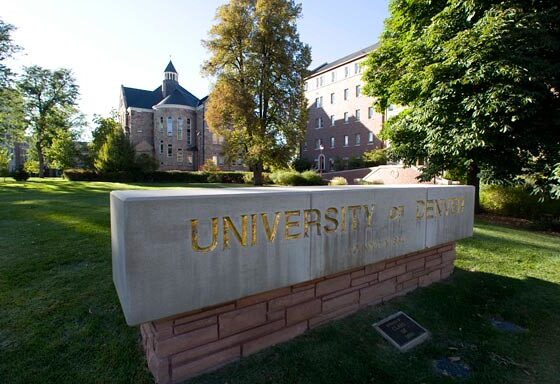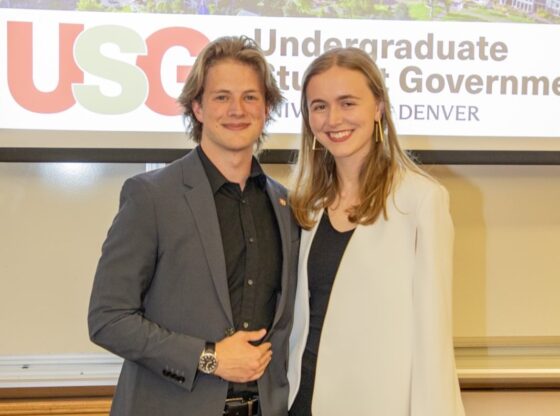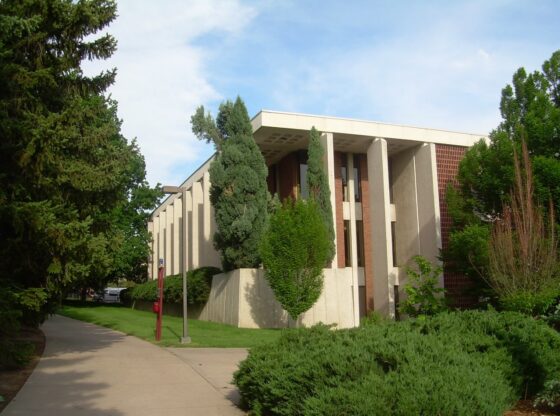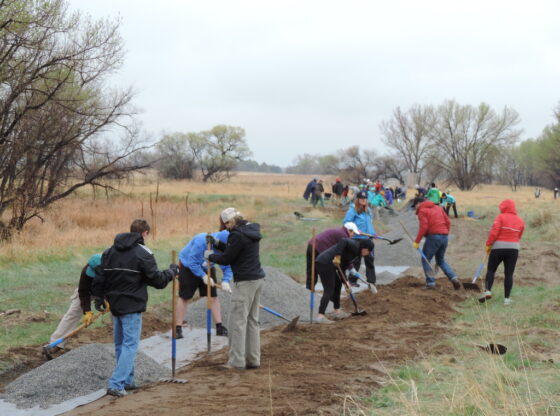DU’s Sustainability Council has set forth efforts to increase bicycle safety on campus through the creation of a bike safety task force, which is set to meet for the first time within the next two weeks.
The group consists of seven participants including students as well as people involved on campus with the Sustainability Council, facilities and transportation services. The council passed a resolution Nov. 18, 2013 to Chancellor Coombe outlining the collaborative efforts that can be taken to make the DU campus more biker-friendly.
The task force has been charged with creating a comprehensive safety plan for campus surrounding biking safety, as well as safety when it comes to interaction between pedestrians and bikers, according to DU Sustainability Coordinator Chad King. It was created in part because of concern surrounding biking accidents on or around campus, according to King. The Center of Sustainability also wishes to push biking as an alternative option to students.
The task force is gathering together the past efforts that have been made by several stakeholders across campus to improve biker safety on campus, according to King. These stakeholders include facilities, who manages where bikes are stored, and the Department of Campus Safety (DCS), who enforces rules regarding bicycles and transportation services.
“A lot of efforts have been made by transportation services already,” said King. “They’ve already looked at things like where we might put fast tracks, which paths are designated for bikes and how we might do signage on campus. There is a body of work out there that we will be using.”
According to King, they are also going to implement the five essential elements of bicycle safety (or the Five E’s) as stated by The League of American Bicyclists (LAB), a national advocacy organization for biking. According to the LAB website, the Five E’s are: engineering safer places for bikers to travel, educating people about skills, encouraging a biking culture, enforcing rules to ensure safety and evaluating whether biking is a safe and viable transportation option.
“We’re going to look at [LAB] for the bones and structure of how we are going to approach our own look at safety,” said King. “They have a lot of good guidelines for creating a biker-friendly university, which we got a bronze rating for last year, so it makes sense to line up those best practices with what we’re trying to do.”
There are several short-term goals that the task force can achieve, according to King. Small things like putting up signs and painting in order to direct people to the right areas in traffic can be done immediately. The task force will then move on to bigger goals like addressing concerns about cross walks around campus as well as addressing issues with bike paths on streets like High Street and Iliff Avenue that are city-designated paths that are unmarked, according to King.
“We just really have to come up with a plan that will enhance biking on campus, so that more people will bike and feel safe about it,” said King. “That’s really what we want, is people feeling safe about how they get around and if they can chose to bike more often it’s better for us in the long run. It makes people healthy and happy.”












